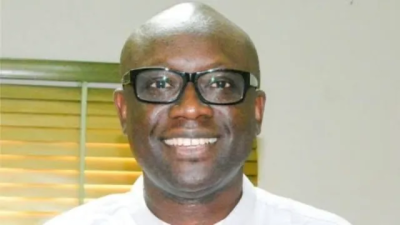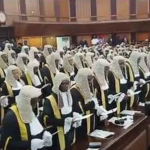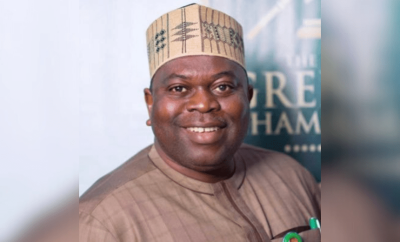EFCC: The Court of Appeal in Abuja has stayed the execution of a Federal High Court judgement that barred the Economic and Financial Crimes Commission (EFCC) from investigating Leno Adesanya, promoter of Sunrise Power and Transmission Ltd.
This case pertains to allegations surrounding the $6 billion Mambilla Hydropower Project. The appellate court’s decision followed an application filed by the Attorney General of the Federation (AGF) seeking a stay of execution of the earlier judgement.
Background of the Case
On September 23, 2024, Justice Inyang Ekwo of the Federal High Court ordered the EFCC to remove Leno Adesanya from its wanted list. Adesanya had been declared wanted over alleged conspiracy and corrupt practices tied to the Mambilla hydropower project.

His counsel, M.S. Diri SAN, argued that the EFCC lacked jurisdiction to investigate what he described as a contractual dispute between Sunrise Power, the Ministry of Power, and the Federal Government. He further noted that the matter was already before the International Chamber of Commerce (ICC) Court of Arbitration in Paris.
The EFCC alleged that Adesanya and others had engaged in corrupt practices regarding the Mambilla project. The agency stated that its investigations revealed evidence of criminal activities leading to charges being filed in a high court.
EFCC: Federal High Court Ruling
Justice Ekwo ruled in favour of Adesanya, emphasising the need to respect ongoing arbitral proceedings at the ICC. He held that the EFCC’s publication of Adesanya as a wanted person was unwarranted, as the agency had no legal authority to investigate or prosecute the contractual dispute pending arbitration. The court directed the EFCC to desist from further action against Adesanya concerning the Mambilla project.
Appeal by the Attorney General of the Federation
Following the High Court ruling, the AGF filed an appeal and requested a stay of execution. The AGF’s legal team, led by T.A. Gazali SAN, argued that executing the trial court’s judgement before the appeal’s resolution would result in irreparable harm. The AGF emphasised the need to allow the appellate court to address the jurisdictional issues raised in the appeal.
Decision of the Court of Appeal
On November 26, 2024, a three-member panel of the Court of Appeal, led by Justice Joseph Oyewole, ruled in favour of the AGF. The appellate court upheld the AGF’s argument about the potential damage that could occur if the judgement was executed prematurely.

Justice Oyewole held that the balance of convenience favoured granting the motion for stay. He dismissed Adesanya’s claim that the application constituted an abuse of the court process and stayed the execution of the Federal High Court’s judgement pending the resolution of the appeal.
Implications of the Appeal Court Ruling
The stay of execution allows the EFCC to continue its investigation into allegations of corruption and financial misconduct related to the Mambilla Hydropower Project. The appellate court’s decision ensures that the case remains active while the AGF’s appeal is determined.
EFCC: What You Should Know About the Mambilla Project
The Mambilla Hydropower Project, one of Nigeria’s largest proposed power generation projects, has been mired in controversy. The EFCC is also prosecuting a former Minister of Power and Steel, Olu Agunloye, in a separate case involving allegations of corruption. The agency claims Agunloye received N3.6 million from Sunrise Power and Transmission Ltd. and Leno Adesanya to approve the Mambilla project.
Ongoing Concerns and Next Steps
While the appellate court has stayed the trial court’s judgement, the underlying issues surrounding the Mambilla project remain unresolved. The case highlights the complex intersection of contractual disputes, criminal allegations, and Nigeria’s commitment to combating corruption. Both the federal government and the judiciary must navigate these challenges while ensuring transparency and accountability.
As the legal proceedings continue, the outcome of the AGF’s appeal and any further developments at the ICC arbitration will play critical roles in determining the future of the Mambilla project and the accountability of the parties involved.









